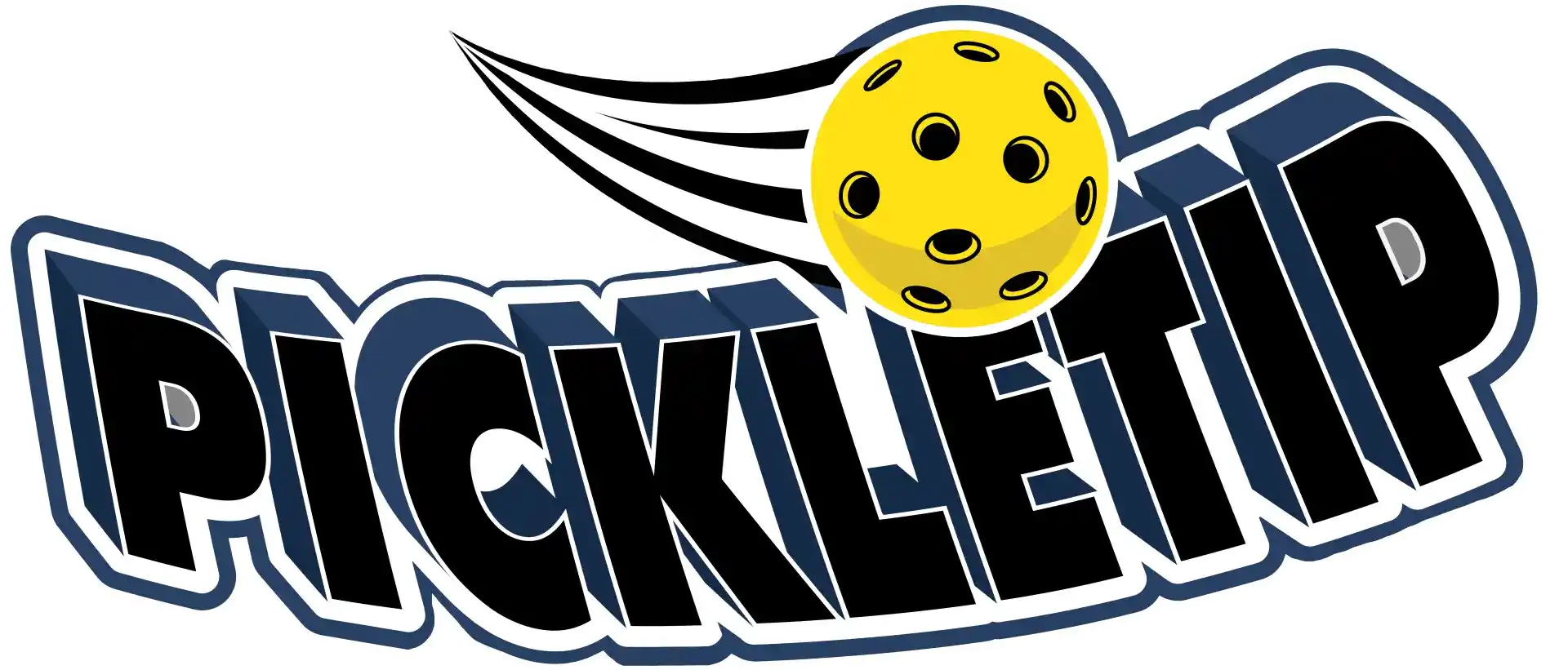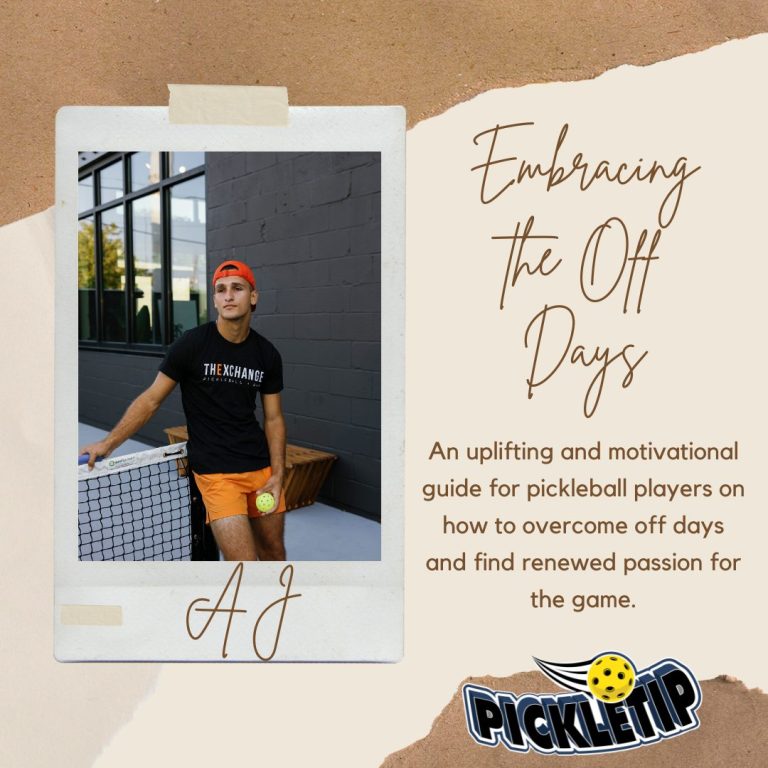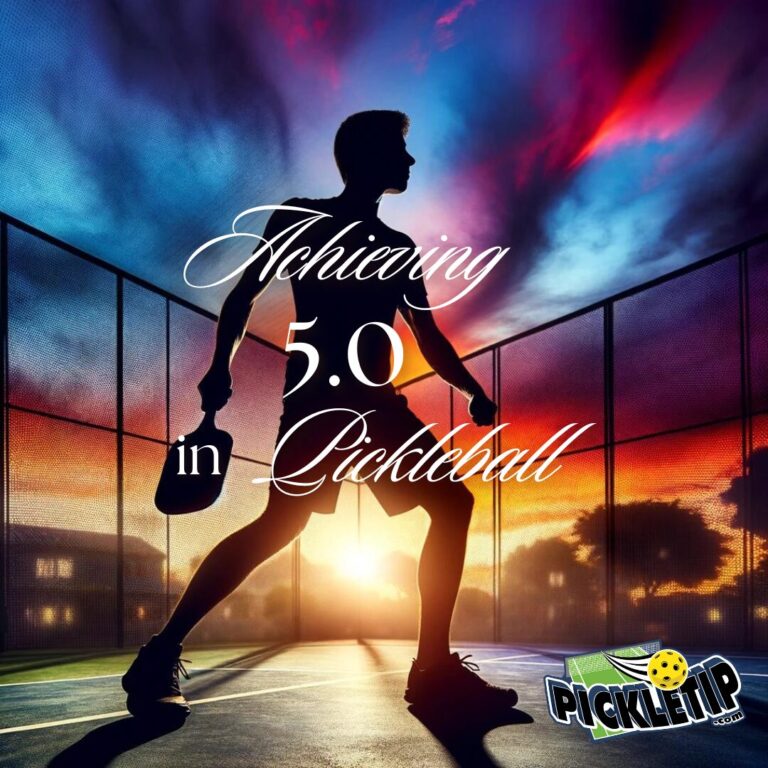Being a Good Teammate in Doubles Pickleball
Being a Good Teammate: Building Bonds on and off the Court
Pickleball has seen a surge in popularity in recent years. One of the most cherished aspects of the game is the camaraderie and bonds formed between players. Whether you’re playing with a spouse, a family member, or a stranger you’ve just met, being a good teammate is crucial. The diversity within the pickleball community is vast, and it’s essential to be the best partner you can be. Here’s how:
Being a Good Teammate: Understanding and Respect
Playing with a Spouse or Family Member:
Understand that everyone has different skill levels and temperaments. It’s essential to be patient and remember that you’re on the same team. Avoid being overly critical and instead focus on constructive feedback.
Playing with a Stranger:
First impressions matter. Start with a warm greeting and try to gauge their skill level and playing style. Respect their boundaries and be open to adapting your game.
Communication is Key
Scenarios:
- Your partner misses a shot.
- You’re unsure who should take the ball.
- You need to change tactics mid-game.
Advice: Always communicate with clarity and positivity. Instead of saying, “You missed that,” try “Let’s get the next one!” or “I’ve got the left, you cover the right.”
Encouragement
Boosting your partner’s morale can make a significant difference. Celebrate the good shots, and when mistakes happen, remind each other that it’s just one point. A simple “You’ve got this!” can uplift spirits.
Tactics and Strategies
Playing with a Spouse or Family Member:
Since you likely know each other’s strengths and weaknesses, develop strategies that play to your strengths. For instance, if one of you has a powerful smash, set up plays that allow for that.
Playing with a Stranger:
It might take a game or two to understand each other’s playing style. Discuss strategies during breaks and be open to trying different tactics. It’s all about being a good teammate
Continuous Learning and Improvement
Attend workshops, watch professional games, and practice together. The more you learn, the better you’ll become, benefiting both you and your partner.
Off the Court
The bond between pickleball partners isn’t limited to the court. Spend time together off the court, whether it’s grabbing a meal, discussing game strategies, or just hanging out. This strengthens the partnership and makes on-court communication more intuitive.
Embrace Diversity
The pickleball community is diverse, with players from various backgrounds, ages, and skill levels. Embrace this diversity. Learn from players who have different strategies and styles. This not only improves your game but also enriches your life.
Remember the Fun
While everyone loves to win, it’s essential to remember that pickleball is a game and should be fun. Being a good teammate allows you to enjoy the rallies, the laughter, the challenges, and the company.
Being a Good Teammate to Whoever You Play With
Being the best pickleball partner goes beyond just the game. It’s about respect, understanding, communication, and building bonds. Whether you’re playing with someone you’ve known for years or someone you’ve just met, every game is an opportunity to be the best version of yourself, both as a player and as a person. Embrace the spirit of pickleball, and you’ll find that the best thing about the game truly is the people you meet.
On-Court Communication in Doubles Pickleball: The Key to a Winning Partnership
Effective on-court communication is the linchpin of a successful doubles pickleball partnership. Whether you’re playing with a seasoned partner or someone new, understanding the nuances of on-court communication can significantly enhance your game. Let’s delve deeper into the intricacies of communicating effectively during a match.
Pre-Game Discussion
Before the game begins, discuss your general strategy and positioning. Decide who will cover which side of the court, how you’ll handle serves, and any specific plays you want to try.
Call the Shots
In the heat of the game, it’s crucial to call out shots to avoid confusion. Common calls include:
- “Mine!” or “Yours!” to indicate who will take the ball.
- “Out!” to let your partner know the ball is heading out of bounds.
- “No!” to signal your partner to let a ball go, especially if it’s heading out.
- “Switch!” if you see an opportunity to change positions for a tactical advantage.
Non-Verbal Communication
Sometimes, a quick glance or hand signal can convey what words cannot, especially in a noisy environment. Develop a set of non-verbal cues with your partner. For instance, pointing to your side of the court can indicate you’ll take the next shot, or a raised hand can signal a strategy shift.
Positive Reinforcement
Always keep the energy positive. If your partner makes a great shot, acknowledge it with a “Nice shot!” or “Well played!” Conversely, if they miss, a simple “No worries” or “We’ll get the next one” can keep spirits high.
Constructive Feedback
If you notice a recurring issue or see an opportunity for improvement, discuss it during a break or after the game. Frame it positively, e.g., “I noticed their player is weak on the backhand; maybe we can target that next time.”
Stay Calm Under Pressure
Tense situations can arise, especially in close matches. It’s essential to remain calm and avoid blaming each other. Instead, focus on the next point and communicate any adjustments you need to make.
Adaptability
Be ready to adapt your communication style based on the game’s flow. If a strategy isn’t working, discuss it quickly and switch things up. A simple “Let’s try something different” can be the cue to change tactics.
Post-Game Debrief
After the match, take a few minutes to discuss what went well and areas of improvement. This not only helps in refining your game but also strengthens your partnership.
Being a Good Teammate Through Communication
On-court communication in doubles pickleball is a blend of strategy, adaptability, and positivity. By mastering these communication skills, you and your partner can navigate the challenges of the game seamlessly, enhancing not only your performance but also the joy of playing together. Remember, it’s not just about calling shots; it’s about building a bond of trust and understanding with your partner on the court.
Guiding Your Pickleball Partner to Success: Subtle Encouragement Over Overt Coaching
In doubles pickleball, as in many team sports, there’s a fine line between offering helpful guidance and coming across as an overbearing coach. While it’s natural to want to help your partner improve, it’s essential to approach the situation with sensitivity and tact. Here’s how you can support your partner’s growth without seeming like an unwanted on-court coach:
Lead by Example
Instead of telling your partner what to do, demonstrate it through your actions. If you want them to adopt a particular stance or technique, incorporate it into your gameplay. Often, seeing is more impactful than hearing.
Ask Open-Ended Questions
Instead of giving direct advice, pose questions that lead to self-reflection. For instance, instead of saying, “You should serve deeper,” you could ask, “Do you think a deeper serve might work against this opponent?”
Offer Compliments Before Constructive Feedback
The “sandwich” approach is a tried-and-true method. Start with a compliment, follow with a gentle suggestion, and end with another positive note. For example: “Your forehand is really strong today. Maybe try angling it a bit more to the left? But overall, great job!”
Use “We” Instead of “You”
Frame suggestions as a team strategy rather than individual criticism. Saying “We could try targeting their backhand more” feels collaborative, while “You should target their backhand” can come off as directive.
Be Receptive to Feedback
Open the door for two-way communication. Ask your partner for their insights and suggestions about your gameplay. This mutual exchange can make it easier for them to accept your feedback.
Choose the Right Moment
Timing is crucial. Avoid giving advice immediately after a missed shot or lost point, as emotions might be running high. Instead, wait for a break or after the game to discuss strategies.
Understand Their Comfort Zone
Some players are more receptive to feedback than others. Gauge your partner’s comfort level and adjust your approach accordingly. If they seem resistant to suggestions, it might be best to hold off and focus on building rapport.
Celebrate the Positives
Highlight and celebrate the good plays, no matter how small. This positive reinforcement can boost confidence and create a more conducive environment for improvement.
Be Empathetic
Remember that everyone has off days. If your partner is struggling, sometimes the best support is simply understanding and encouragement, rather than technical advice.
Off-Court Bonding
Building a strong personal connection off the court can make on-court communication smoother. Spend time together outside of games, discuss shared interests, and get to know each other better. A deeper bond can lead to better trust and openness on the court.
Being a Good Teammate
Supporting your partner’s growth in pickleball requires a delicate balance of encouragement, tact, and understanding. By focusing on collaboration and building trust, you can guide your partner towards improvement without coming across as an unwanted coach. Remember, the goal is to enhance the joy of playing together and to strengthen your partnership both on and off the court.








4 Comments